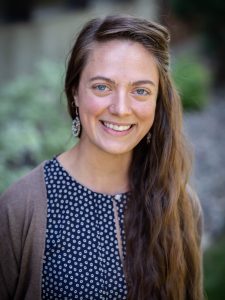 By Emilie Bouvier
By Emilie Bouvier
“But even more, all types of conniving methods are still being used to prevent Negroes from becoming registered voters. The denial of this sacred right is a tragic betrayal of the highest mandates of our democratic tradition. And so our most urgent request to the president of the United States and every member of Congress is to give us the right to vote.”
–Rev. Dr. Martin Luther King, “Give Us the Ballot,” address delivered at the
Prayer Pilgrimage for Freedom, May 17, 1957
I spent some time on MLK Day yesterday reading this speech by the Rev. Dr. King, seeking to learn more about his words on voting rights in particular. Nine years after he shared these insights, the Voting Rights Act was passed as a landmark legislative victory of the Civil Rights movement. The day it was passed, the Rev. Dr. King remarked that “voting is the foundation stone of political action.”
Fast forward 55 years to the following lines from a 2020 article about voting in Minnesota (and the most significant way in which that right is stripped away):
Minnesota passed disenfranchisement of felons with statehood in 1858, but the practice didn’t become commonplace nationally until after the Civil War — when newly emancipated African Americans gained the right to vote. … Chris Uggen, a criminologist at the University of Minnesota who studies felon voting bans, said it’s difficult to untangle race from a punishment that continues to disproportionately impact black and Indigenous people.
ABOUT TWO YEARS AGO, the synod’s Strategic Organizing Against Racism (SOAR) team discerned that criminal justice reform was a key thread to pull in in the holy work of untangling the bonds of injustice. Our current system is set up to be one of punishment, rather than one of restorative justice, and focusing our efforts on “collateral sanctions” is to identify those punitive measures that add up, burden upon burden, falling disproportionately on black on brown communities.
The statistics are staggering. In Minnesota African Americans make up 5% of the total population in the state but make up 31% of the population in Minnesota prisons and jails. American Indians and Alaska Natives are 1% of the total population in Minnesota, yet 8% of the incarcerated population in the state.
Take a minute to realize what that means: The 101,800 people in Minnesota who have been released from prison but are still “on paper” – that is, on probation or parole – are highly disproportionately people of color who thus are banned from voting. It comes into focus quickly that this is an issue of racial justice. In fact, this is an issue of civil rights, and an issue of democracy and justice to which we bring a unique voice as people of faith.
“The SOAR Team discerned that criminal justice reform was a key thread to pull in in the holy work of untangling the bonds of injustice.”
As Lutherans, we believe deeply in a God of restoration, reconciliation, and redemption. We are steeped in a language, hope, grace, stories, and promises of God’s redeeming force. Our ELCA Social Statement titled “The Church and Criminal Justice: Hearing the Cries” outlines the brokenness of our criminal justice system, specifically lifting up the way the dominant narrative around crime and punishment is antithetical to our theological commitments. It states:
Prevalent views such as ‘tough on crime’ rhetoric and policies make it more difficult to see each person involved in the criminal justice system as a human being. These views effectively override the conviction that all people are created in the image of God and worthy of appropriate and compassionate responses.
Yet these words from our social statement are not the end of our involvement in this issue; they’re just the beginning. Leaders from across our synod have been coming together to raise awareness and seek action opportunities to create change.
I’M INSPIRED BY THIS faithful work to build a future of racial equity in democratic participation. Grounded in our identity as people of restoration and reconciliation, we have an opportunity to practice love in action by raising our voices on this issue.
See, there’s a reason I was reading this particular speech from MLK yesterday. Last week Restore the Vote legislation was introduced in the Minnesota House and Senate that will seek to restore voting rights to formerly incarcerated people in our state. Hearings will continue this week and we have the opportunity as people of faith to show up and to witness to our vision of redemption.
Here are some ways to learn more about this issue and how to get involved:
- Watch this synod-produced video that gives background and highlights the voices of synod leaders
- Check out the various resources on the racial justice organizing page on the synod website
- Sign up for updates and action opportunities for Lutherans for Restore the Vote
